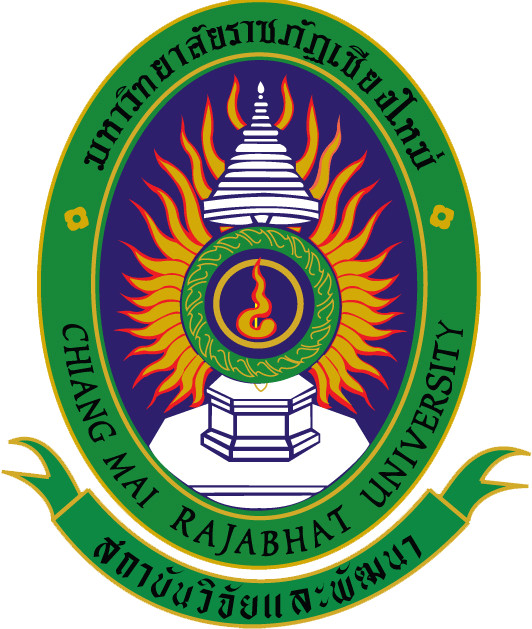
ระบบสารสนเทศงานวิจัย สถาบันวิจัยและพัฒนา มหาวิทยาลัยราชภัฏเชียงใหม่
Research Information System(RIS)
การจัดการความรู้ด้านการใช้สมุนไพรเพื่อสุขภาพ โดยกระบวนการมีส่วนร่วมของชุมชน ในเทศบาลเมืองเมืองแกนพัฒนา อำเภอแม่แตง จังหวัดเชียงใหม่
อาจารย์จุฬาวลี มณีเลิศ
คณะวิทยาศาสตร์และเทคโนโลยี
คำสำคัญ :
เลขทะเบียน :
522-58-SCI-NRCT
บทคัดย่อ
การวิจัยเรื่องนี้มีวัตถุประสงค์เพื่อศึกษาบริบทที่รวบรวมองค์ความรู้เกี่ยวกับการใช้สมุนไพรในพื้นที่เทศบาลเมืองเมืองแกนพัฒนา ตำบลช่อแล อำเภอแม่แตง จังหวัดเชียงใหม่ เพื่อพัฒนาระบบสารสนเทศสมุนไพรเพื่อสุขภาพ โดยกระบวนการมีส่วนร่วมของชุมชน และเพื่อประเมินผลสัมฤทธิ์ของการใช้ระบบสารสนเทศสมุนไพรเพื่อสุขภาพ ผู้วิจัยได้นำแนวคิดการวิจัยเชิงปฏิบัติการแบบมีส่วนร่วม (Participatory Action Researcher: PAR) มาใช้ในการพัฒนาระบบสารสนเทศ กลุ่มเป้าหมายมี 2 กลุ่ม คือ กลุ่มที่ 1 เป็นผู้ให้ข้อมูลองค์ความรู้เกี่ยวกับสมุนไพรและช่วยออกแบบเนื้อหาบทเรียน ประกอบด้วย ตัวแทนผู้สูงอายุ จำนวน 1 คน และครูจำนวน 2 คน และกลุ่มที่ 2 เป็นกลุ่มผู้เรียนที่ศึกษาบทเรียนในระบบสารสนเทศสมุนไพรเพื่อสุขภาพที่พัฒนาขึ้น คือนักเรียนชั้นมัธยมศึกษาตอนต้น โรงเรียนชุมชนวัดช่อแล และโรงเรียนป่าจี้วังแดงวิทยา อำเภอแม่แตง จังหวัดเชียงใหม่ จำนวน 52 คน เครื่องมือที่ใช้ในการศึกษาได้แก่ ระบบสารสนเทศสมุนไพรเพื่อสุขภาพ บทเรียนสมุนไพรสวนครัวในระบบสารสนเทศ แบบทดสอบก่อนเรียนและแบบทดสอบหลังเรียน แบบฝึกหัดท้ายบท และแบบสอบถามความพึงพอใจกลุ่มผู้ใช้งานที่มีต่อระบบสารสนเทศ วิเคราะห์ข้อมูลโดยใช้ค่าเฉลี่ย ส่วนเบี่ยงเบนมาตรฐาน และการทดสอบที (t-test) โดยการทำวิจัยครั้งนี้ได้กำหนดค่าประสิทธิภาพของกระบวนการ (E1) ประสิทธิภาพของผลลัพธ์ (E2) ตามเกณฑ์ (E1/ E2) ที่ระดับ 80.00/80.00 ผลการศึกษาพบว่า ระบบสารสนเทศสมุนไพรเพื่อสุขภาพมีการจัดการความรู้โดยรวบรวมข้อมูลเกี่ยวกับพืชสมุนไพร ได้แก่ สมุนไพรในท้องถิ่น สมุนไพรจากภูมิปัญญา และสมุนไพรสวนครัว ในระบบประกอบด้วย บทเรียน แบบทดสอบก่อนเรียนและแบบทดสอบหลังเรียน แบบฝึกหัดท้ายบท และแบบสอบถามความพึงพอใจ โดยกลุ่มผู้เรียนจำนวน 52 คน มีคะแนนเฉลี่ยหลังเรียนเพิ่มขึ้นจากคะแนนก่อนเรียน มีความก้าวหน้าทางการเรียนคิดเป็นร้อยละ 52.50 บทเรียนมีประสิทธิภาพเบื้องต้นตามเกณฑ์ (E1/ E2) เท่ากับ 81.52/81.54 การทดสอบผลสัมฤทธิ์ทางการเรียนพบว่าค่าเฉลี่ยก่อนเรียนและหลังเรียนเท่ากับ 8.71 และ 24.46 ตามลำดับ โดยคะแนนผลสัมฤทธิ์ทางการเรียนของหลังเรียนสูงกว่าก่อนเรียนอย่างมีนัยสำคัญทางสถิติที่ระดับ 0.05 และได้สอบถามความพึงพอใจกลุ่มเป้าหมายที่ใช้งานระบบจำนวน 55 คน มีความพึงพอใจต่อระบบสารสนเทศสมุนไพรเพื่อสุขภาพ อยู่ในระดับมาก คิดเป็นคะแนนเฉลี่ย 4.04
Abstract
This research was conducted with objectives to: study the context of herbal use in the area of Muang Kaen Pattana Municipality, Cho Lae sub-district, Mae Taeng district, Chiang Mai province; develop a healthy herbal information system via a participation process of the studied community ; and assess achievement in using the developed healthy herbal information system. The methodology of Participatory Action Research (PAR) was applied for developing the information system. The two target groups were specified to include the group of knowledgeable persons who can provide information about herbs and assist in designing the lessons’ contents (Group 1) and the group of learners who studied about herbs with the developed healthy herbal information system. Group 1 consisted of an older representative and two teachers, whilst Group 2 consisted of 52 Lower Secondary Education students of Wat Cho Lae Community School and Pa Jee Wang Daeng Wittaya School. The research tools included the healthy herbal information system, the electronic lessons about herbs in kitchen gardens, the pre-test and post-test exams, quizzes after each lesson, and a questionnaire to assess satisfaction of the users toward the information system. The data were analyzed by considering the means, standard deviations, and t-test values. The study results revealed that the healthy herbal information system could facilitate the knowledge management process by collecting data about herbs, which included local herbs, herbs from wisdom, and herbs in kitchen gardens. The group of 52 students was found to have higher scores in the post-test exam after they have learnt with the information system, as compared to their pre-test scores. Their learning progress was 52.50% on average. The lessons also met the primarily specified efficiency criterion (E1/ E2) by having an overall efficiency of 81.52/81.54. Regarding achievement of the learners who studied with the developed system, their mean pre-test and post-test scores were 8.71 and 24.46, respectively. The achievement score after learning with the system was significantly higher than the pre-test score, at the significance level of 0.05. The results from the questionnaire distributed to the target group of 55 users who used the system revealed that they had a high level of satisfaction toward the healthy herbal information system, with a mean score of 4.04.
ไฟล์งานวิจัย
อยู่ในระหว่างการปรับปรุงเนื้อหา2301 31 ม.ค. 2560
สำนักงานคณะกรรมการวิจัยแห่งชาติ (วช.)
196 Paholyotin Rd., Chatuchak, Bangkok 10900
0-2561-2445